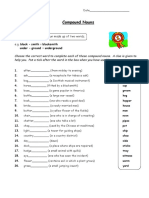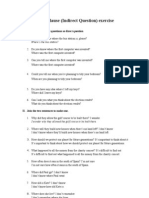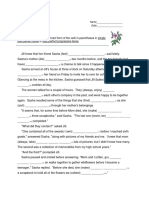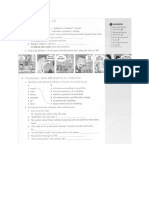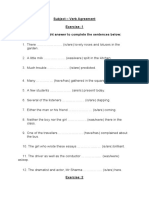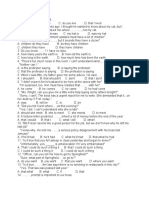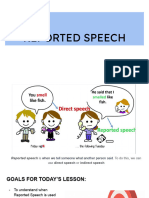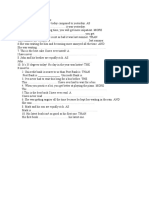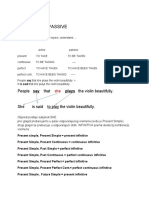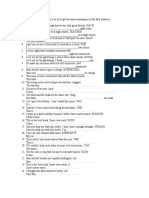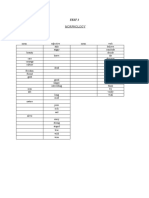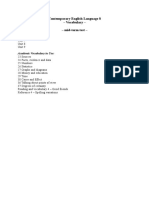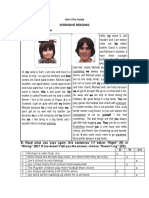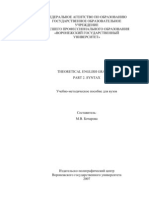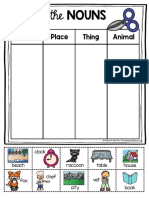0% found this document useful (0 votes)
138 views3 pagesVerb Patterns Rules
The document explains the usage of infinitives, bare infinitives, and gerunds in English grammar, detailing their applications after certain verbs, adjectives, and in various contexts. It also highlights instances where gerunds and infinitives can be used interchangeably or with different meanings. Additionally, it provides examples to illustrate each point clearly.
Uploaded by
Aleksandra JovanovicCopyright
© © All Rights Reserved
We take content rights seriously. If you suspect this is your content, claim it here.
Available Formats
Download as DOCX, PDF, TXT or read online on Scribd
0% found this document useful (0 votes)
138 views3 pagesVerb Patterns Rules
The document explains the usage of infinitives, bare infinitives, and gerunds in English grammar, detailing their applications after certain verbs, adjectives, and in various contexts. It also highlights instances where gerunds and infinitives can be used interchangeably or with different meanings. Additionally, it provides examples to illustrate each point clearly.
Uploaded by
Aleksandra JovanovicCopyright
© © All Rights Reserved
We take content rights seriously. If you suspect this is your content, claim it here.
Available Formats
Download as DOCX, PDF, TXT or read online on Scribd
/ 3










